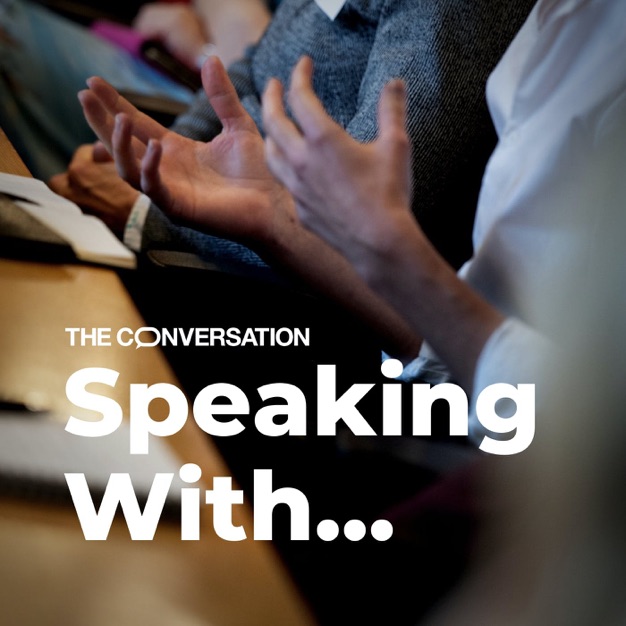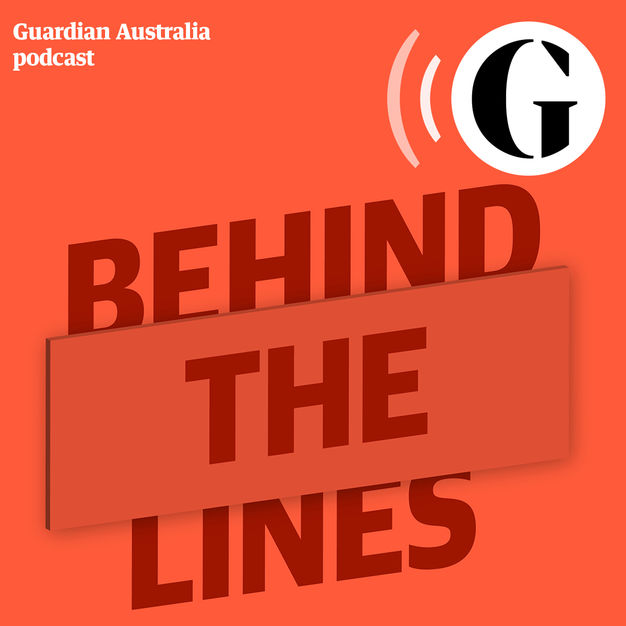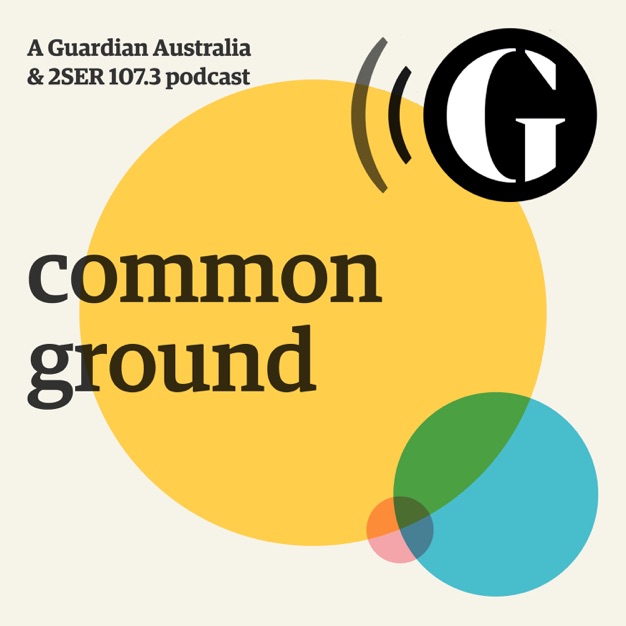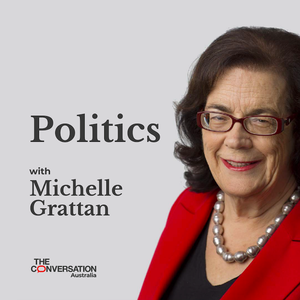
Speaking with...
The Conversation
Ideas and analysis from the sharpest minds in the academic and research world.
- 25 minutes 50 secondsSpeaking with: Chris Ho and Edgar Liu about diversity and high density in our cities
 We can make conscious decisions about how we live together in closer proximity that allow for both cultural diversity and a shared sense of community. Ján Jakub Naništa/Unsplash
We can make conscious decisions about how we live together in closer proximity that allow for both cultural diversity and a shared sense of community. Ján Jakub Naništa/Unsplash
This is a podcast discussing topics raised in our series, Australian Cities in the Asian Century. These articles draw on research, just published in a special issue of Geographical Research, into how Australian cities are being influenced by the rise of China and associated flows of people, ideas and capital between China and Australia.
Migration and population growth are hot-button issues in Australian politics at the moment. State and federal election campaigns have and will focus on them for probably years to come, and it’s not just a local phenomenon: by 2030 it’s estimated 60% of the world’s population will live in cities.
Most of the time discussions about the impacts are focused on external pressures – things like road congestion and infrastructure investment – but as more and more people are living in high-density housing, issues of cultural diversity and how we live together in such close proximity are just as important.
How do we make sure we can live comfortably and respect each other? And how could policy change the sense of ownership we have over ever smaller personal spaces?
Dallas Rogers speaks with Christina Ho and Edgar Liu about the changing ways we’re living in Australian cities, and how little attention has been given to what’s happening inside the apartment buildings of our cities.
Music
- Free Music Archive: Ketsa - Catching Feathers

Dallas Rogers recently received funding from The Henry Halloran Trust, Australian Housing and Urban Research Institute (AHURI), Urban Growth NSW, Landcom, University of Sydney, Western Sydney University, and Community Broadcasting Association of Australia (CBAA).
8 November 2018, 7:32 pm - 15 minutes 20 secondsSpeaking with: ‘Everybody Lies’ author Seth Stephens-Davidowitz on why we tell the (sometimes disturbing) truth online
 According to Seth Stephens-Davidowitz, everybody lies to preserve social relations. www.shutterstock.com, CC BY
According to Seth Stephens-Davidowitz, everybody lies to preserve social relations. www.shutterstock.com, CC BYHow much do you really know about your friends? Your co-workers? Your community and your country?
The fact is that much of what we think we know about the people around us is likely to be skewed, because people tend to lie. We lie in conversation, on social media, and in surveys. But there exists an online trove of data that allows us to paint a much more accurate picture of who we really are.
That’s the argument of US data scientist Seth Stephens-Davidowitz, author of the book Everybody Lies and our guest on today’s episode of Speaking with.
Stephens-Davidowitz says he uses data from the internet – what he calls “the traces of information that billions of people leave on Google, social media, dating, and even pornography sites” to tell us the surprising and sometimes disturbing truth about who we really are.
Seth Stephens-Davidowitz spoke with David Tuffley, a senior lecturer in applied ethics and sociotechnical studies at Griffith University, to talk about what he learned.
Edited by Dilpreet Kaur.
Recorded by Michael Lund.
Seth Stephens-Davidowitz is in Australia to speak at the Festival of Dangerous Ideas in Sydney on this Sunday, November 4. He was also a speaker at Griffith University’s Integrity 20’18 event on October 24-26.
Subscribe to The Conversation’s Speaking with podcast on Apple Podcasts, or follow on Tunein Radio.
You can find more podcast episodes from The Conversation here.
Music
 30 October 2018, 11:32 pm
30 October 2018, 11:32 pm - 24 minutes 6 secondsSpeaking with: Author Anita Heiss on Growing Up Aboriginal in Australia
 Growing Up Aboriginal in Australia is a compilation of 52 essays from First Nations authors, some of whom have never been published before. Rounak Amini/AAP
Growing Up Aboriginal in Australia is a compilation of 52 essays from First Nations authors, some of whom have never been published before. Rounak Amini/AAPAnita Heiss is one of the most prolific writers documenting Aboriginal experiences in Australia today through non-fiction, historical fiction, poetry and children’s literature. Her memoir, Am I Black Enough for You?, was a finalist in the 2012 Human Rights Awards.
 Growing Up Aboriginal in Australia.
Black Inc. Books
Growing Up Aboriginal in Australia.
Black Inc. Books
For her latest book, Growing Up Aboriginal in Australia, Heiss traded the role of writer for editor. The anthology includes 52 essays from First Nations writers spanning the breadth of society, from rural to urban, young to old, coastal regions to the country’s interior, well known authors to emerging writers. There’s even an essay by an opera singer, Don Bemrose, about his experience as what she calls a “double minority” – he’s both Aboriginal and gay.
The result is a collection of stories that speaks to the strength of Aboriginal identity in Australia today, as well as the diversity of voices in the long marginalised Aboriginal literary community.
For this episode of Speaking With, Professor Jacinta Elston, pro vice-chancellor (Indigenous) at Monash University, spoke with Heiss about the process of making the selections for the anthology, the main themes explored in the essays and how she envisions the book being used as a reference tool in classrooms across the country.
Edited by Maggy Liu.
Anita Heiss is speaking at the Brisbane Writers Festival on Sunday, 9 September.
Read more: Love in the time of racism: ‘Barbed Wire and Cherry Blossoms’ explores the politics of romance
Subscribe to The Conversation’s Speaking With podcasts on Apple Podcasts, or follow on Tunein Radio.
You can find more podcast episodes from The Conversation here.
Music

Jacinta Elston does not work for, consult, own shares in or receive funding from any company or organisation that would benefit from this article, and has disclosed no relevant affiliations beyond their academic appointment.
5 September 2018, 5:25 am - 22 minutes 22 secondsSpeaking with: law professor Cass Sunstein, on why behavioural science is always nudging us
 Governments can use nudges to influence our choices Shutterstock
Governments can use nudges to influence our choices ShutterstockWhat can governments do to stop increasing obesity rates, help people save or get them to file their tax returns on time? The default answer used to be some kind of tax or penalty. Just make people pay more and they’ll do the right thing, right?
But what if you could encourage certain behaviour without forcing the issue? That’s where nudges come in. These are small changes in design or presentation, like putting healthy food near the cash register, or sending reminders out around tax time.
For this episode of Speaking with, The Conversation’s Josh Nicholas chats with Cass Sunstein, a Harvard professor who worked as a “regulatory czar” for years in the Obama administration. Sunstein literally wrote the book on nudges along with Richard Thaler, who won the 2017 economics Nobel Prize. The book is called Nudge: Improving decisions about health, wealth and happiness.
Read more: The promise and perils of giving the public a policy 'nudge'
As the controversial My Health Record has shown, behavioural science is now considered a standard part of the public policy toolkit. My Health Record was created to be “opt out”, in order to “nudge” people into remaining in the system.
This takes advantage of a bias we have towards the default setting: many of us won’t expend the effort to opt out. Many governments – including Australia’s – now have professional “nudge units” stocked with behavioural scientists, working on problems such as tax avoidance and organ donation.
Today on Speaking with, Professor Sunstein talks about nudges and public policy, when and where they work and how policymakers should use them.
Subscribe to The Conversation’s Speaking With podcasts on Apple Podcasts, or follow on Tunein Radio.
Music
 3 September 2018, 3:00 am
3 September 2018, 3:00 am - 30 minutes 31 secondsSpeaking with: journalist David Neiwert on the rise of the alt-right in Trump’s America
 A white supremacist holding a US flag over his face during a Unite the Right rally in Washington in August. Michael Reynolds/EPA
A white supremacist holding a US flag over his face during a Unite the Right rally in Washington in August. Michael Reynolds/EPAThe rise of the radical right-wing movement in the US has become closely linked to Donald Trump’s presidency and the mainstreaming of ideas about race that were not so long ago found only on the furthest fringes of society.
David Neiwert’s new book, Alt-America: The Rise of the Radical Right in the Age of Trump, charts the key political and social moments that have shaped these movements. He has spent more than two decades immersing himself in the strange, disturbing world of radical right-wing groups in the US, which are characterised by conspiracy theories unhinged from reality and a growing tendency to espouse violence against liberals as a solution to the world’s problems.
 Alt-America: The Rise of the Radical Right in the Age of Trump.
Verso Books
Alt-America: The Rise of the Radical Right in the Age of Trump.
Verso Books
While many of the ideas championed by these groups are similar those propagated by the Ku Klux Klan of the past, the new radical right-wing groups have benefited from the internet and social media. This allows them to easily communicate their perceived grievances to a new generation of followers, predominantly young men.
In some ways, this provides for a degree of anonymity, as well. Some of the more violent, racist and often misogynist views are promulgated by these groups online with little personal social cost.
What is most concerning, and what Neiwert demonstrates in detail throughout the book, is the way in which the mainstream news media, in particular Fox News, has become a forum for mainstreaming some of these ideas about racial superiority, fuelling political division and partisanship.
With the election of Trump, these once marginalised groups now have a clear figurehead – one who promotes their wild, and sometimes dangerous, conspiracy theories to the world.
Neiwert’s book delves deep into the anxieties these people feel about their status in a changing and complex world. Issues like immigration, changing race relations, women’s rights and economic stagnation have all fuelled a desire to find someone to blame. When this is mixed with a pervasive gun culture, the result is a highly volatile mix of anger, paranoia and violence.
 Investigative journalist David Neiwert.
Author provided
Investigative journalist David Neiwert.
Author provided
The consequences have been deeply disturbing. Political rallies that end in frenzied screams of “lock her up”, alt-right rallies that result in death, and the growing toll of mass shootings that are disproportionately carried out by offenders influenced by the alt-right are a sign that something fundamentally twisted and nasty is colonising mainstream American politics.
Edited by Maggy Liu.
David Neiwert is appearing at the Word Christchurch Festival on Thursday, 30 August; the Antitode Festival in Sydney on Sunday, 2 September; and the Brisbane Writers Festival on Saturday, 8 September.
Subscribe to The Conversation’s Speaking With podcasts on iTunes, or follow on Tunein Radio.
See also:
Trump’s First Year in Office: Bizarre and Sometimes Alarming
Booksellers, the alt-right and Milos Yiannopolous
The seeds of the alt-right, America’s emergent, right-wing populist movement
Music

Kumuda Simpson does not work for, consult, own shares in or receive funding from any company or organisation that would benefit from this article, and has disclosed no relevant affiliations beyond their academic appointment.
30 August 2018, 2:31 am - 22 minutes 43 secondsSpeaking with: Cameron McAuliffe on NIMBYs, urban planning and making community consultation work
 We're used to hearing cries of "NIMBYism" and "money-hungry developers" on both sides of planning debates, but there's actually more subtlety to interactions around urban planning that are worth exploring and understanding. Joel Carrett/AAP
We're used to hearing cries of "NIMBYism" and "money-hungry developers" on both sides of planning debates, but there's actually more subtlety to interactions around urban planning that are worth exploring and understanding. Joel Carrett/AAPOne of the most common complaints about community involvement in the urban planning process is “NIMBYism” – the “not in my backyard” cry from local residents, which developers and potential residents of medium-to-high-density apartments see as an impediment to healthy urban development and affordable housing.
At the same time, local residents often see the planning process as freezing them out of having any real say in development that can affect local amenities, transport and neighbourhood character.
Recent changes to planning legislation in New South Wales make community participation plans a mandatory part of the process, in an effort to put consultation at the centre of urban planning.
But how do you balance these two competing, seemingly antagonistic groups?
Dallas Rogers speaks with Cameron McAuliffe, Senior Lecturer in Human Geography and Urban Studies at Western Sydney University, about how urban planning can leverage the natural conflict between groups with very different demands to reach better solutions, why the NIMBY slur is often misplaced and how local resident action groups are working beyond the current urban planning system to achieve their goals.
This podcast reports on data in the research paper “Tracing resident antagonisms in urban development: agonistic pluralism and participatory planning”, to be published in Geographical Research.
Subscribe to The Conversation’s Speaking With podcasts on Apple Podcasts, or follow on Tunein Radio.
Music

Dallas Rogers recently received funding from Western Sydney University, Australian Housing and Urban Research Institute (AHURI), Urban Growth NSW, University of Sydney, and Community Broadcasting Association of Australia. The Henry Halloran Trust funded the research reported on in this podcast.
5 April 2018, 6:11 am - 19 minutes 15 secondsSpeaking with: satirist Armando Iannucci on The Death of Stalin
 The Death of Stalin is about the chaotic political drama that followed the Russian leader's demise in 1953. Madman Films
The Death of Stalin is about the chaotic political drama that followed the Russian leader's demise in 1953. Madman FilmsWe’re living in something of a golden age for political satire. Politics and satire can even feel, at times, almost indistinguishable.
But politics and comedy have never been that far apart. Charlie Chaplin’s 1941 film The Great Dictator ridiculed Adolf Hitler. More recently The Thick of It mocked the UK political class and Veep satirised US politics with very funny and scarily prescient results.
Those latter two were written by Armando Iannucci, a Scottish writer and director who has been described as the hardman of political satire. His new film, The Death of Stalin, stars the likes of Steve Buscemi and Jason Isaacs and is about the chaotic political drama that followed the Russian leader’s demise in 1953.
 A scene from The Death of Stalin.
Madman films
A scene from The Death of Stalin.
Madman films
For this episode of Speaking With, I spoke to Armando Iannucci, who warns that we should beware any politician who can’t take a joke.
And, by the way, there’s a bit of swearing in this interview, so consider this a language warning.
The Death of Stalin will be in cinemas March 29 across Australia.
Read more: No laughing matter: Armando Iannucci's The Death of Stalin reveals the anxieties of team Putin

Stephen Harrington does not work for, consult, own shares in or receive funding from any company or organisation that would benefit from this article, and has disclosed no relevant affiliations beyond their academic appointment.
26 March 2018, 2:27 am - 23 minutes 46 secondsSpeaking with: Andrew Leigh on why we need more randomised trials in policy and law
 AndrewLeigh.com, Author provided
AndrewLeigh.com, Author providedRandomised controlled trials are the gold standard in medical research. Researchers divide participants into two groups using the equivalent of flipping a coin, with one group getting a new treatment and a control group getting either the standard treatment or a placebo. It’s the best way to prove that a new treatment works.
But the benefits of randomised trials aren’t limited to medical applications. Big businesses – like Amazon, Google, Facebook and even media organisations – are increasingly using randomised trials to test designs and processes that increase their engagement with users and customers. Every time you Google something you’re probably participating in a randomised trial.
And that world of randomisation is the subject of Andrew Leigh’s new book, Randomistas: How radical researchers changed our world. Leigh is the current federal member for Fenner, and Labor’s shadow assistant treasurer. But prior to his political life he was a professor of economics at Australian National University.
He spoke with the University of Melbourne’s Fiona Fidler about how we should be using randomised trials more to drive decisions and policy in public life and why we might be missing out on better results in social policy because we’re afraid to test our assertions.
Andrew Leigh’s Randomistas: How radical researchers changed our world is out now from Black Inc books. His podcast on living a health, happy and ethical life, The Good Life, is available on Apple Podcasts or wherever you stream your podcasts.
Subscribe to The Conversation’s Speaking With podcasts on Apple Podcasts, or follow on Tunein Radio.
Music

Fiona Fidler receives funding from the Australian Research Council and IARPA.
15 March 2018, 5:12 am - 19 minutes 47 secondsSpeaking with: David Field about unusual crimes that have changed the law

Is sleepwalking a legitimate defence for murder? Are victims of family violence protected against the premeditated killing of their abuser?
Professor David Field has worked as a public prosecutor, a criminal defence lawyer and as the solicitor for prosecutions in Queensland, a post he occupied for nine years.
He spoke to William Isdale about some extraordinary crimes that have resulted in changes to the criminal law, and the precedents these cases have then established.
Subscribe to The Conversation’s Speaking With podcasts on iTunes, or follow on Tunein Radio.
Additional Audio
- CBC Digital Archive: 1990: Supreme Court accepts battered wife syndrome defence
- The New York Times:‘Dingo’s Got My Baby’ Trial by Media Retro Report
- ABC: Stafford lawyer calls for Holland murder inquiry
- ABC: Azaria case closes after 32yrs
- ABC Radio National: Battered woman defence
- SBS: Is the provocation defence allowing killers to get off lightly?
- Global Newspaper: Ivan Milat Inside the mind of a serial killer
- Channel TEN: Sydney’s 5:00PM newscast
- PBS: The Brain with David Eagleman
Music
David Field’s book Crimes That Shaped The Law contains true stories of crimes that have resulted in changes to the criminal law. In many of these cases, a miscarriage of justice precipitated reform.

William Isdale does not work for, consult, own shares in or receive funding from any company or organisation that would benefit from this article, and has disclosed no relevant affiliations beyond their academic appointment.
24 January 2018, 12:50 am - 59 minutes 22 secondsSpeaking with: social researcher and author Hugh Mackay on 2017, ‘a really disturbing year’
 Social researcher Hugh Mackay and The Conversation's FactCheck Editor Lucinda Beaman.
Social researcher Hugh Mackay and The Conversation's FactCheck Editor Lucinda Beaman. “I’ve found 2017 a really disturbing year.”
That’s the summary from writer, thinker and social researcher Hugh Mackay.
Mackay spoke in December with The Conversation’s FactCheck Editor Lucinda Beaman at the Sydney launch of The Conversation 2017 Year Book: 50 standout articles from Australia’s top thinkers. Among the essays featured in the book is Mackay’s enormously popular and thought-provoking article titled The state of the nation starts in your street.
The discussion, which you can hear in full on The Conversation’s Speaking With podcast above, touched on issues ranging from the rise of Donald Trump and what it means for Australian politics, to social dislocation and distrust in our institutions – and in each other.
Mackay said: “We’re now seeing many long term trends coming to fruition”.
“What is happening to Australian society is that we are edging in that same direction [as America]: more inequality, a growing number of people who feel as though the political narrative – such as it is – has got nothing to do with them,” he said.
“Fragmentation is the theme of 2017,” he said, citing concerns about loneliness and disconnected communities.
As for what we can do differently in 2018? Part of the solution, Mackay said, is getting off the screens and connecting with people in our local neighbourhoods.
“We don’t have to be prime minister, we don’t have to be in government, we don’t have to be the lord mayor of Sydney to produce changes that could transform our way of life and mental health,” he said.
“We’re like most species on the planet in our deep need of each other, our deep need to feel connected, to feel as though we belong to herds and tribes, neighbourhoods groups and communities.”
“So the first thing I would say is let’s recognise that this strange collection of people that I live with in my apartment block or in my street are my neighbours and the neighbourhood.”
“We’re all friendly with our friends and we all know how to be nice to people we like. The great thing about neighbourhoods is they’re full of people we may like or dislike, very different from us,” he said. “It’s very good for our moral development to have to learn how to rub along with people you didn’t choose.”
When you move into a neighbourhood, he said, “you have imposed upon yourself a moral obligation to engage with whatever that community turns out to be. Because in a crisis, you’re going to need each other.”
“If you know that someone in your street or in your apartment block is living alone and you don’t see much of them, make sure you’ve made contact. Just knock on the door and say ‘G'day, I’m Hugh, I’m not going to bother you but I’m here’,” he said.
“It’s a good time of year to be saying ‘what can we do?’. Because it’s the season when it doesn’t seem deeply weird to organise a street party, or to invite the neighbours in.”
Subscribe to The Conversation’s Speaking With podcasts on Apple Podcasts, or follow on Tunein Radio.
Music
 22 December 2017, 4:20 am
22 December 2017, 4:20 am - 23 minutes 53 secondsSpeaking with: Emrys Westacott on the virtue of frugal living
 Simple living in a complex time – is a return to frugality the key to happiness? Xurxo Martínez/flickr, CC BY-NC-SA
Simple living in a complex time – is a return to frugality the key to happiness? Xurxo Martínez/flickr, CC BY-NC-SAThey say the best things in life are free – or at least, Emrys Westacott seems to think so.
For those who have the choice, the rejection of extravagance is deemed highly virtuous. Many of the great thinkers of history have advocated the moral value of frugal living, but in our culture of excess the temptation to indulge can be difficult to overcome.
William Isdale spoke with Emrys Westacott, a Professor of Philosophy at Alfred University, New York, about how a return to simple living could bring greater happiness in our increasingly complex world – though there’s a case to be made for the cultural value of extravagance, too.
Emrys Westacott is the author of The Wisdom of Frugality: Why Less Is More - More or Less, a philosophically informed reflection on the benefits of frugal living.
Subscribe to The Conversation’s Speaking With podcasts on Apple Podcasts, or follow on Tunein Radio.
Additional Audio
- William Hemblton: Hotel Carpe Diem Advertisement
- Telstra: The Magic of Technology
- Freesound: dobroide - 20060824.forest03.wav
- Freesound: InspectorJ - Stream, Water, C.wav
- Freesound: eastierp - frogs in a pond
- Freesound: Arctura - AMBIENT LOOP - Perfectly Clear - Wilderness Hillside - FILTERED.mp3
- Freesound: pcaeldries - FireBurning_v2.wav
- Lr33s_ag: All of Donald Trump’s Billions
Music
- Free Music Archive: Blue Dot Sessions - Wisteria
- Free Music Archive: U.S. Army Blues - Main Stem
- Free Music Archive: U.S. Army Blues - Not On The Bus
- Free Music Archive: Jason Shaw - Running Waters
- Free Music Archive: Gillicuddy - Adventure, Darling
- Free Music Archive: Gardner Chamber Orchestra - Mozart: Sinfonia Concertante for violin and viola, K. 364

Emrys Westacott received a summer stipend from the National Endowment for the Humanities in 2010 to support the writing of his last book, 'The Wisdom of Frugality.'
William Isdale does not work for, consult, own shares in or receive funding from any company or organisation that would benefit from this article, and has disclosed no relevant affiliations beyond their academic appointment.
5 December 2017, 7:15 pm - More Episodes? Get the App
Your feedback is valuable to us. Should you encounter any bugs, glitches, lack of functionality or other problems, please email us on [email protected] or join Moon.FM Telegram Group where you can talk directly to the dev team who are happy to answer any queries.
 Behind the Lines - The Guardian Australia
Behind the Lines - The Guardian Australia
 Trust Me, I'm An Expert
Trust Me, I'm An Expert
 Common Ground - Guardian Australia
Common Ground - Guardian Australia
 Essays On Air
Essays On Air
 Politics with Michelle Grattan
Politics with Michelle Grattan